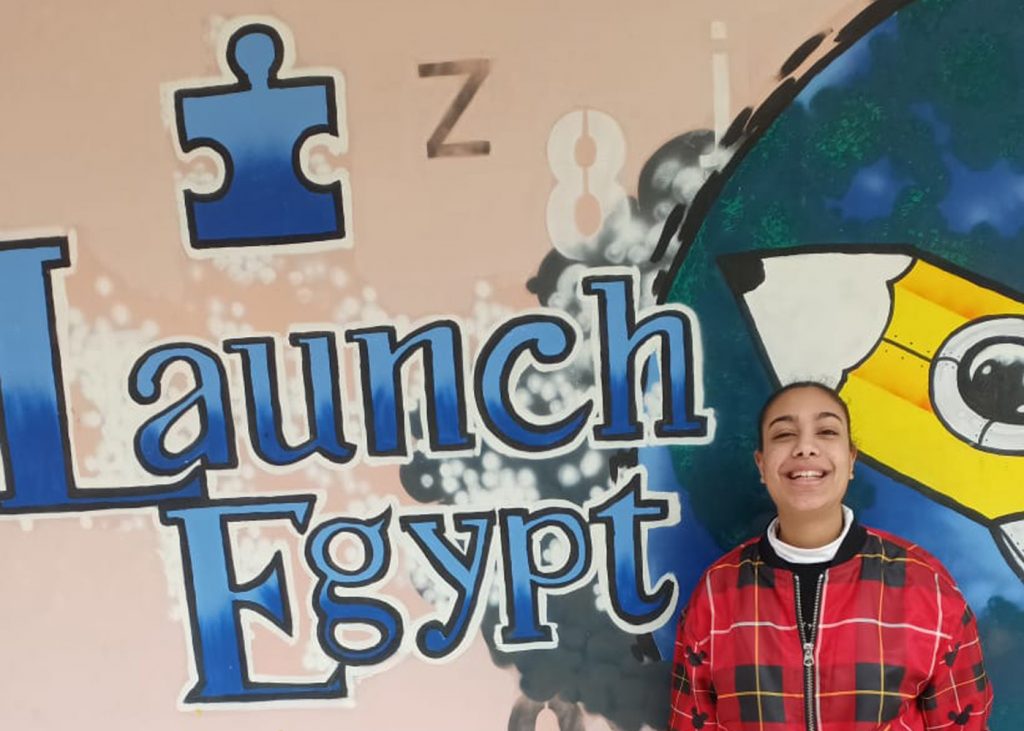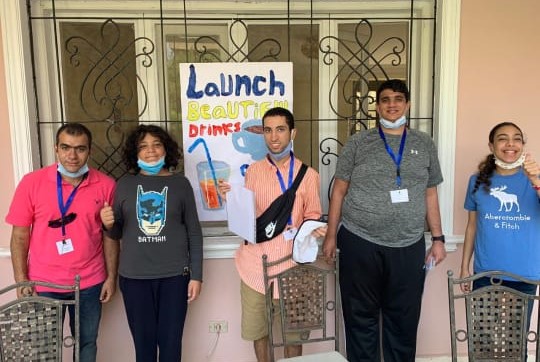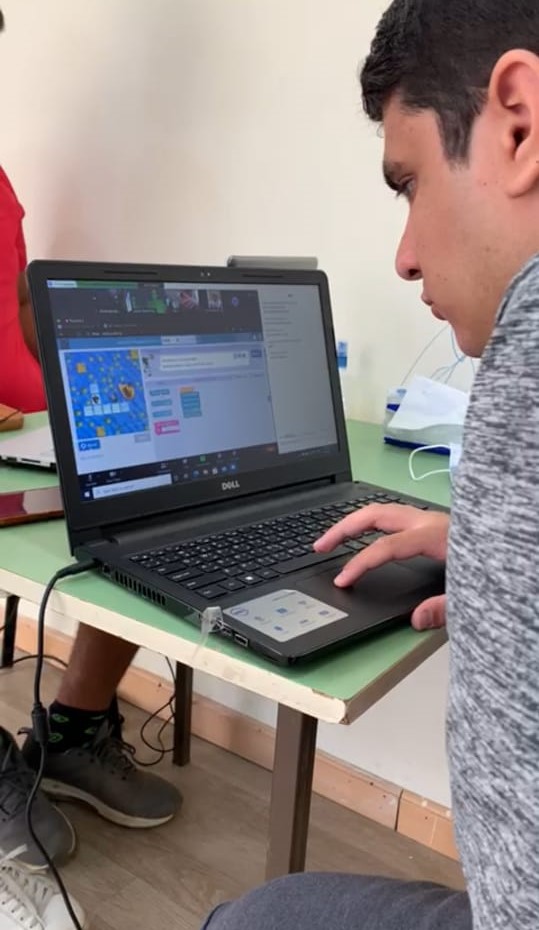-
What We Do
- WHERE WE WORK
-
About Us
 Welcome Message from Carol Jenkins
Welcome Message from Carol JenkinsFor more than 90 years, World Learning has equipped individuals and institutions to address the world’s most pressing problems. We believe that, working together with our partners, we can change this world for the better.
On my travels, I’ve had the opportunity to meet with many of those who have joined us in this mission. In Baghdad, we’ve trained more than 2,300 Iraqi youth who are already giving back at home. In London, our partners in the TAAP Initiative strongly believe that we are all responsible to practice inclusion. And in Vermont, our Experiment in International Living and School for International Training participants prove every day that they have the tools and the determination to change the world.
Please join us in our pursuit of a more peaceful and just world.
- Get Involved
Media Center > Story
How a New Partnership is Advancing Inclusive STEM Education in Egypt
April 8, 2021

Though the course was facilitated online the students gathered together at the Launch Egypt campus for each session.
While Egypt’s Social Solidarity Ministry estimates that nearly one in every 160 children in the country shows signs of autism, autistic children and young people remain marginalized within Egypt’s education system. Autistic young people are often excluded from traditional schools and may not receive basic education, let alone more advanced subject-matter training or opportunities for workforce preparation.
To bridge this gap, in the fall of 2020 STEM Hub Egypt partnered with Launch Egypt to offer online STEM (science, technology, engineering, and math) training specifically for autistic young adults. The STEM Hub Egypt is a learning center that was established by World Learning and Boeing to equip Egypt’s youth with skills in STEM fields and the confidence to lead the next era of innovation. Launch Egypt is a Cairo-based organization working to help children and youth of all needs reach their full potential.
The STEM Hub quickly adapted its content for Launch Egypt’s students and carried out two sessions on coding and programming between September and November 2020 and a third session on electronics in January 2021, with six students participating in total. Though this was the first partnership between STEM Hub Egypt and Launch Egypt, inclusive approaches to education have long informed the STEM Hub’s work.
“Inclusion is one of World Learning’s and STEM Hub Egypt’s work ethics and goals,” says STEM Hub Director Yasmine El Bendary.

STEM Hub Egypt was able to harness World Learning’s global expertise in inclusive education in preparing the sessions, with World Learning Senior Education and Research Specialist Deepa Srikantaiah conducting a professional development workshop for the STEM Hub facilitators ahead of the content creation process. The workshop covered how to tailor the trainings to the needs of different learners and respond to those needs during implementation. Srikantaiah also introduced the principles of Universal Design for Learning, a research-based framework that regards all students as unique learners, and provided guidance on implementing Universal Design for Learning within the course.
In turn, the team of facilitators reimagined the program content—dividing the content into simplified components; infusing more teamwork and soft skill activities to build rapport and trust; and structuring the program to take place over a longer timeframe with shorter sessions to accommodate concentration challenges. This customization didn’t stop once the sessions began. Rana Elsemary, one of the facilitators engaged in training the Launch Egypt students, says that she challenged herself to continually adapt the course during and after each class—trying different facilitation methods with each student, assessing whether they were effective, and then repeating the cycle again to ensure all students understood the concepts and were getting the information in ways that worked for them.
“It was an amazing experience for me because I found that [the students] are very smart and very intelligent—they just need to be given a chance,” says Elsemary.
Elsemary, whose parents were teachers, emphasizes that being a facilitator is not about being someone with higher authority—it’s about supporting the students and validating them as they solve the problems themselves. She adds that the students’ excitement and appreciation of having this opportunity made this facilitation experience singularly meaningful for her.

As a result of this course, these young people have had the chance to explore and identify their interests in programming and electronics and have gained skills that can be utilized in the job market within Egypt and beyond.
“Discovering the STEM Hub has definitely added to us at Launch Egypt. The STEM Hub has given us the opportunity to widen our young adults’ scope of interests,” says Manal Dorgham, the academic coordinator for Launch Egypt. “Seeing our young adults engaged and excited has given us the motivation to work more on their vocational skills. It proved that they are capable of doing whatever they set their minds to. From the very beginning, I’ve seen nothing but extreme measures of organization, helpfulness, and support.”
Today, the STEM Hub is continuing its learning journey with the group by introducing more advanced topics: Arduino, an electronic prototyping platform, and graphic design. Though, Elsemary says it’s not just the students that have learned from the experience.
“I discovered I’m not just facilitating—I’m learning. These students just teach me a lot of things about myself and the concepts…they let me wonder about new questions,” says Elsemary.
Elsemary says they have helped her realize it’s okay not to have all the answers—that she can admit when she doesn’t understand something and say they’ll figure it out together. Everyone learns differently.
Editor’s Note: This piece uses identity-first language (‘autistic individual’ vs. ‘individual with autism’) as recommended by the Autistic Self Advocacy Network, an organization run by and for autistic people with the goal of promoting equal access, rights, and opportunities.





